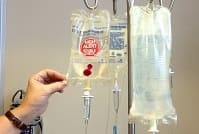
Non-Prescribing Mental Health Professionals Can Help Meet Psychiatric Needs in Emergency Departments
January 21, 2021
More and more people are seeking psychiatric care in emergency departments, leading to strains on staff and resources — and this trend will likely continue due to the COVID-19 pandemic. The American Association for Emergency Psychiatry (AAEP) supports the use of psychiatric emergency clinicians (PECs), which include non-prescribing mental health professionals such as licensed clinical social workers and clinical psychologists, to help meet this growing need. The AAEP recognizes the training and expertise of PECs in addressing psychiatric crisis situations, and offers recommendations for integrating them into emergency department care across the country. To learn more, see the article in Psychiatric Services.

Majority of Parents Value Teen Peer Support Leaders in Schools
January 18, 2021
Peer support is an important part of mental health recovery, and its availability in school settings may be a lifeline for teens experiencing mental health issues for the first time. According to a recent national poll, more than three-quarters of parents (76%) believe peer leaders in schools would better understand students’ mental health challenges than teachers or counselors. Most (72%) also think access to peer support in schools would encourage students to speak up when they need help. Although parents raise concerns about training and the emotional toll on young peer leaders, overall support may inspire a new strategy to address student mental health. To learn more, see the report from C.S. Mott Children’s Hospital.

Small Study Finds Repeated Ketamine Infusions Safe and Effective for Treatment of Chronic PTSD
January 5, 2021
One dose of intravenous ketamine can provide significant and rapid relief for symptoms of major depressive disorder and PTSD when other treatments have failed. Researchers recently conducted a randomized controlled trial to determine the drug's efficacy and safety for the treatment of PTSD when administered repeatedly over the course of two weeks. Thirty participants with chronic PTSD received six infusions of either intravenous ketamine or placebo over the study period. After two weeks, the ketamine group showed a significant reduction in symptom severity compared to the control group, without serious adverse effects. To learn more, see the study in the American Journal of Psychiatry.

